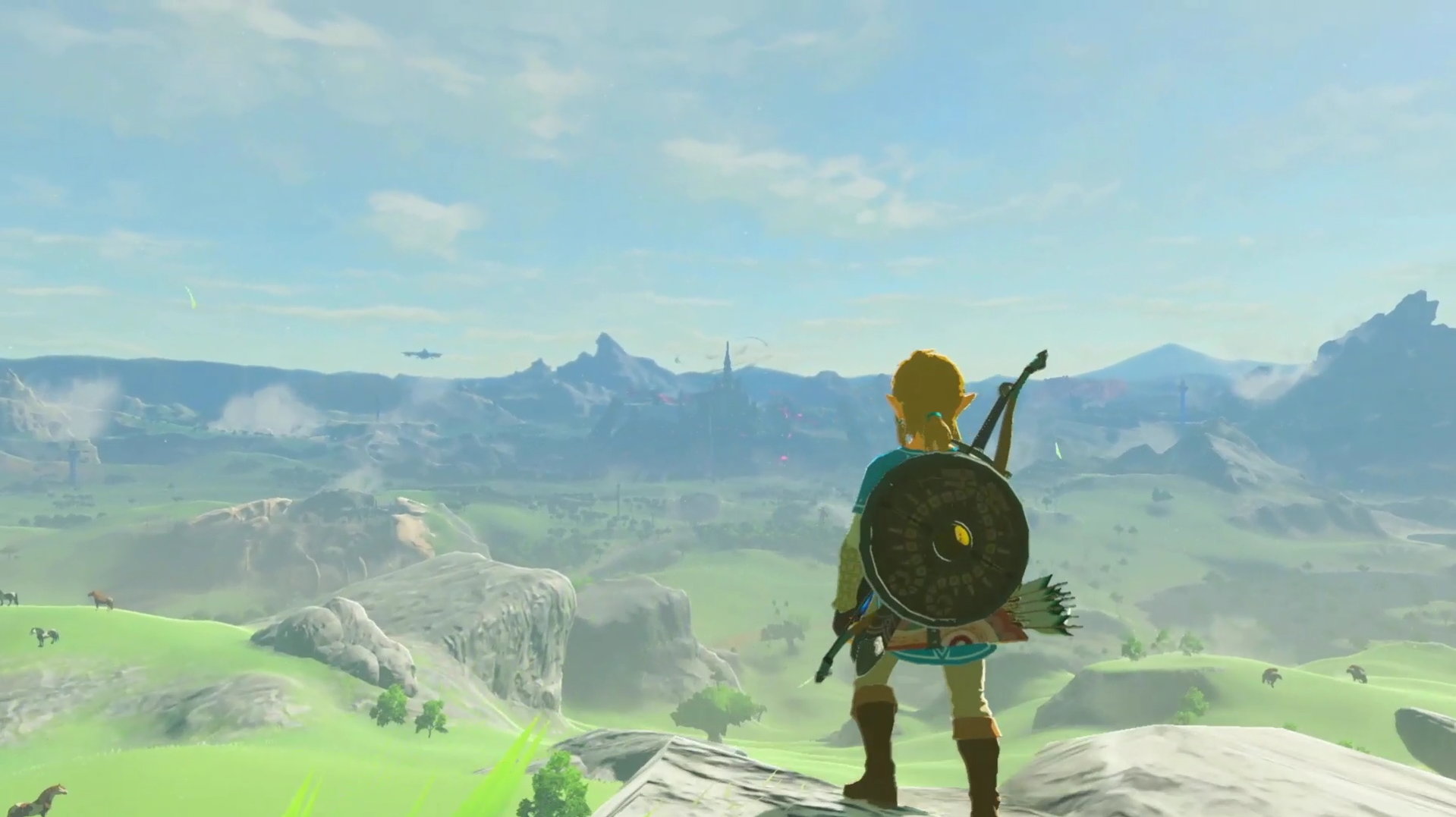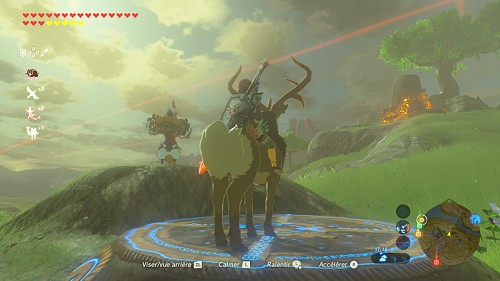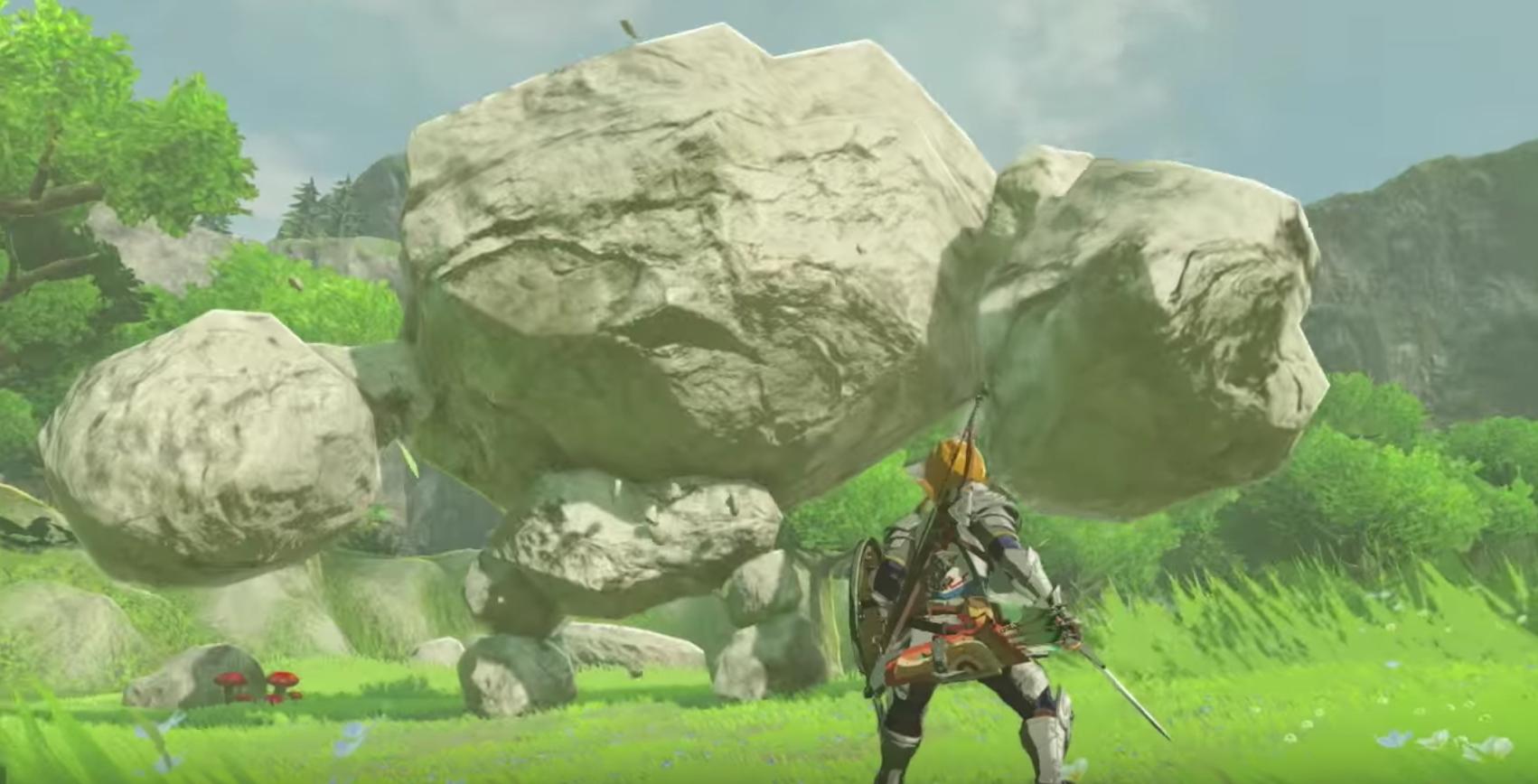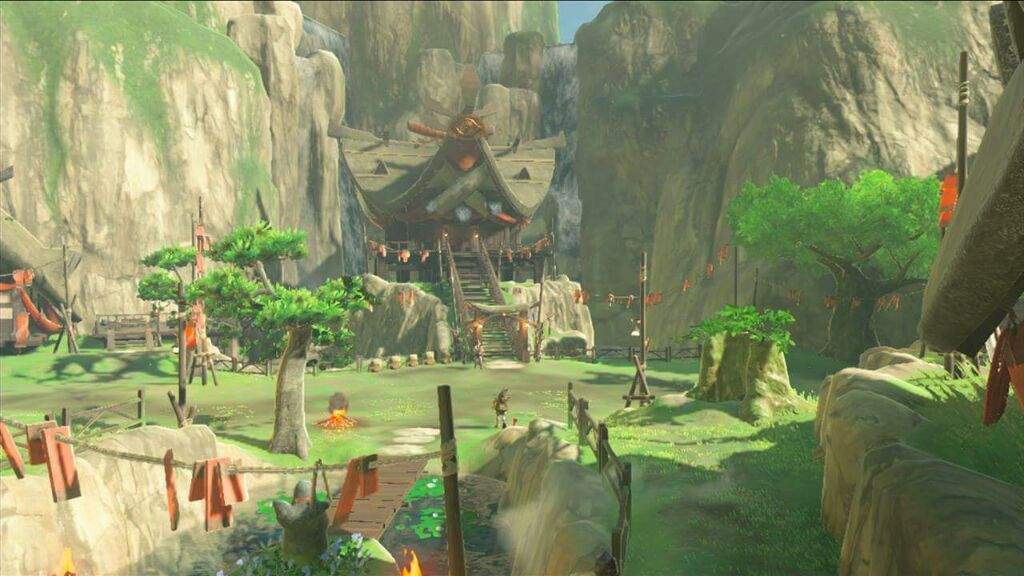Breath of the Wild - Guide to Filling a Map
Open world games are known
for many things, exploration, traversal, world building and being empty with
nothing to do in it. I haven’t played enough open world games to be able to
give my opinion on open world on a whole and if they suck or not, but I can
talk about how The Legend of Zelda: Breath of the Wild was able to fill it’s
map so no matter where you we’re and at what point of the game, there’s was always
something that caught your eye.

Korok seeds and
shrines are how Breath of the Wild rewarded exploration. There are 900 korok seeds scattered in the
world which makes sure that every nook and cranny has something for you. If you
look at a tree, you get a korok. If you take a step, you get a korok. You
probably get a korok just for turning on the game. These korok seeds are turned
in to Hestu, in exchange for inventory space which makes these seeds rewarding
but not overpowering or game breaking.

Shrines on the other hand, are the games way
of replacing dungeons and the actually bread and butter of the game. 120 of
these are put around in the map and are either puzzles inside the shrine, a battle
or a puzzle outside of the shrine. The battles are basically filler since they
are repeated around 20 times. The puzzles inside the shrine are perfectly fine
but can be hit or miss. The real star are the shrines that are found through
shrine quests. Shrine quests are given to you from NPC’s and are like normal
side quests but with the reward being shrines. These range from finding a
landscape that looks like a bird to finding hidden orbs and placing them in
front of 7 statues of warriors. These not only help build the world, but
familiarize the player with the landscapes and map. I honestly would’ve preferred
if all the shrines came from shrine quests instead of just stumbling onto a
shrine out of no where.

Mini bosses and enemy
camps are also scattered across the map with a reward if you defeat all the enemies.
These are well placed across the map making sure to cover a lot the map but one
thing I do have a problem with is the boss variance. There are only 4 different
types of bosses and with around 100 mini bosses being scattered across the map,
it can get pretty old. The amount of times I’ve fought a rock with arms is just
mind boggling.

Breath of the Wild probably
has some of the best landscapes ever with an art style that’s probably timeless.
If you look at the Great Plateau alone, the starting area of the game that’s just
1 piece of the huge map, you’ll see so much variance from snowy mountains to swamps
to forests. The whole map has deserts, volcanoes, lakes, ruins, canyons and the
list goes on. The diversity of the areas helps keeps everything fresh and because
they’re so beautiful, you want to explore them even without an incentive. I often
boot up the game just to ride my horse around map and yes, I know that makes me
sound like a hugging fucking loner.

Not only are the
areas diverse, but the sub areas within the areas are filled with diversity.
They may have remnants of the past hyrule, a town, NPCs, temples and so on. I remember
the first time I saw a dragon at the top of a snowy mountain with a goddess statue
and I was just in awe with how beautiful yet atmospheric everything was.
Mountains in this game even have a greater purpose than usual, letting you jump
off and paraglide to discover new things. The whole environment is so beautiful
and masterfully crafted that I can you can years of content just exploring.

I can talk on about
every single little thing in Breath of the Wild that makes map feel full and diverse
but because I only have so many word space I can use, I’ll have to stop here. My final thoughts are that, if anything,
Breath of the Wild is one of those special games that feel like every single piece
of it was hand made by God, and yes I am talking about Eiji Aonuma.
Comments
Post a Comment